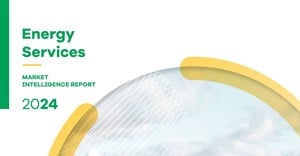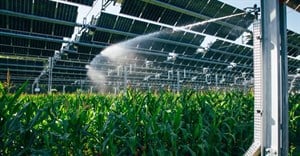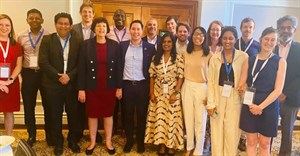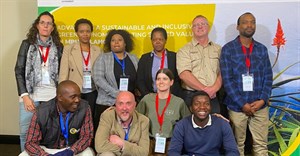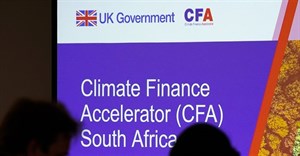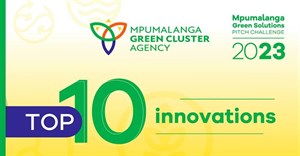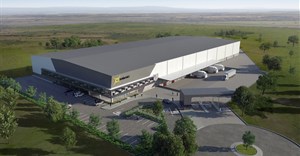
Subscribe & Follow
Advertise your job vacancies
South African climate finance report tracks R62.2bn in annual climate finance
Over the past two decades, South Africa has also adopted a range of national and sectoral policies, plans and strategies that aim to decarbonise the economy while meeting broad developmental objectives.
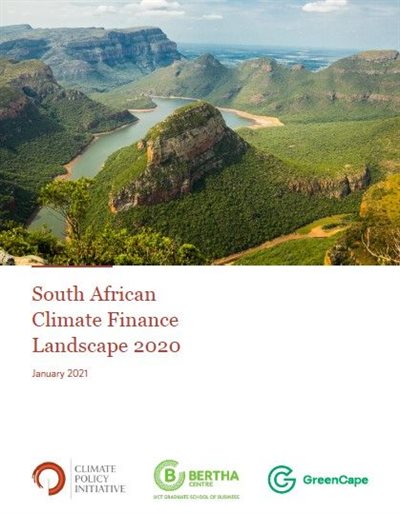
As the country moves to implement its national climate goals it faces important domestic challenges that need to be addressed. One of these key domestic challenges is the lack of climate finance data and analysis necessary to support national climate policy, mobilise public and private partnerships, and promote resilient economic growth.
“A clear understanding on the providers of climate finance, financial instruments used to channel investments, key sectors where finance is flowing, and the role of different stakeholders can help to scale up investments to achieve South Africa’s nationally determined contribution,” highlighted Dr Angela Falconer, director at Climate Policy Initiative (CPI).
A recent South African Climate Finance Landscape report published by GreenCape and The Bertha Centre for Social Innovation and Entrepreneurship, in partnership with Climate Policy Initiative (CPI), has tracked R62.2bn in annual climate finance invested in SA for 2017 and 2018. This is a baseline of what is possible in catalysing the financing and investments required to proceed towards the low-carbon and climate-resilient economy.
“It was inspirational to see the amount of work that is already underway in the climate finance landscape in South Africa. Our analysis benefited from close dialogue and interaction about specific climate finance flows with the National Treasury, the Department of Environment, Forestry and Fisheries, fund managers, investors and industry experts. Experts in these organisations, and many other private and public stakeholders, were critical in helping us better understand the available data, and our work has benefited substantially from the many discussions,” said Jack Radmore, energy and green finance programme manager, GreenCape.
The South African Climate Finance Landscape looks at detailed project-level data, understanding in detail the source, disbursement, instrument and use. The insights can support public and private role-players with information to shape sectoral strategies and selected policies and improve coherence and coordination between public and private level spending in the sectors.
The sources of finance tracked included public finance (~R22bn tracked), private finance (R35.3bn tracked) and blended finance (R4.9bn tracked) for 2017 and 2018.
The end uses of the tracked climate finance included mitigation activities (81% of the finance tracked), adaptation activities (7% of the finance tracked) and dual benefit activities (13% of the finance tracked).
An International Finance Corporation (IFC) study estimated that the total investment needed to achieve South Africa’s NDCs is R8.9trn over a 15-year timeframe (from 2015 to 2030). This translates to a required annual investment of R596bn to achieve South Africans NDCs by 2030. This points to a rather substantial gap between required annual investment and actual tracked investment.
“There remains a clear need to move beyond business as usual, increasing annual investments into targeted sectors, if South Africa is going to achieve its agreed climate goals and initiate a genuine systemic transition across the economy,” highlighted Natasha Dinham, senior project manager impact investing at the Bertha Centre for Social Innovation and Entrepreneurship. “This is a baseline of what is possible in catalysing the financing and investments required to proceed towards the low-carbon and climate-resilient economy, which remains a vital challenge for the country,” she added.
The project team identified several challenges in creating a South African climate finance landscape and although the numbers and trends identified represent the available data, further work is needed to continue to improve the accuracy of the South African climate finance landscape. The report makes the following recommendations to address the identified challenges:
- Launch a process to develop agreed-upon definitions of climate finance, with guidelines on tagging and tracking investments.
- Improve public-private coordination within South Africa.
- Increase support for blended finance vehicles and develop innovative financial tools.
- Increased clarity and consistency around regulation is needed, particularly for smaller climate sectors and subsectors.
“On the back of these foundational findings, more work is needed to establish a multi-stakeholder platform to better understand the role of public and private actors and to facilitate inter-ministerial and cross-sectoral coordination and efforts to mainstream climate objectives,” added Chavi Meattle, senior analyst from Climate Policy Initiative.
This project was organised with the financial support of the German Federal Ministry for the Environment, Nature Conservation, and Nuclear Safety (BMU) in the context of the International Climate Initiative (IKI). The contents of this publication are the sole responsibility of the publishing entity and do not necessarily reflect the views of the funders.
Please get in touch with the Green Finance team at GreenCape for more information: https://www.green-cape.co.za/content/sector/green-finance
About GreenCape
GreenCape is a non-profit organisation that drives the widespread adoption of economically viable green economy solutions from South Africa. The team works with businesses, investors, academia and government to unlock the investment and employment potential of green technologies and services, and to support a transition to a resilient green economy. GreenCape’s vision is to create a thriving and prosperous Africa using green economy principles. Our aim is to be globally relevant in driving the uptake of green economy infrastructure solutions in the developing world context.
GreenCape is a non-profit organisation that drives the widespread adoption of economically viable green economy solutions from South Africa.
- Dragonfly (powered by Anisoptera) wins 7th annual FNF GreenPitch Challenge12 Sep 11:18
- Top 10 green economy innovations announced for 2024 FNF GreenPitch Challenge05 Aug 13:36
- Call for entries: 2024 FNF GreenPitch Challenge11 Jun 11:59
- 2024 Green Opportunities Challenge national finalists announced21 May 14:29
- New reports forecast ~32 GW of installed renewable energy capacity in SA by 203018 Apr 15:12












